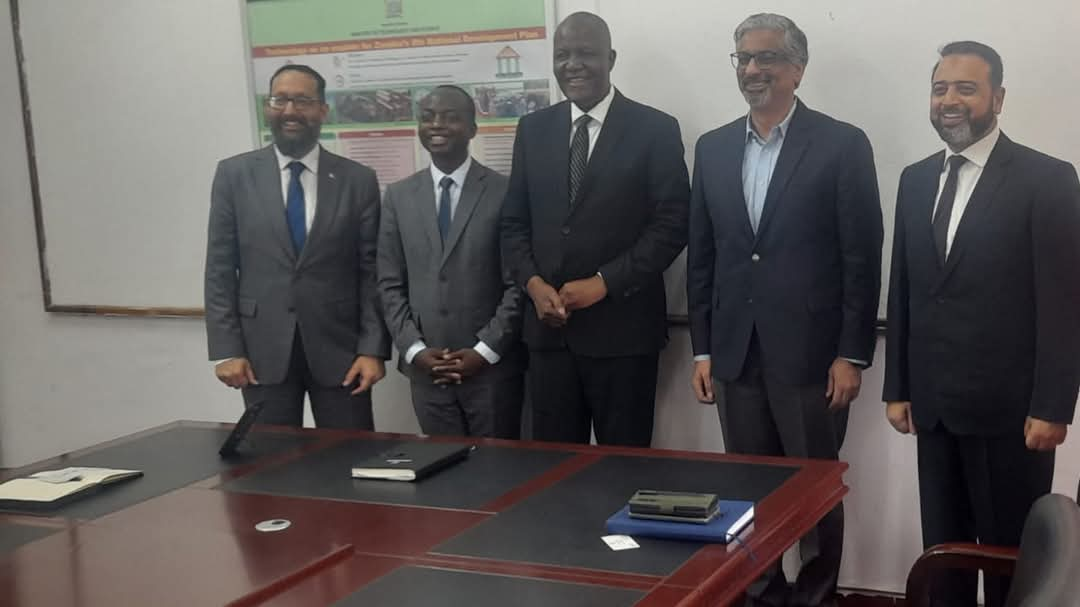Reported by: The Agency Media.
Date: 13th March, 2025.
Lusaka, Zambia.
Zambia’s Ministry of Technology and Science is strengthening global partnerships in digital transformation following a high-level meeting with a visiting delegation from Pakistan, led by Mr. Muhammad Faisal Khan, Chief Executive Officer of M/S TeReSol PVT Ltd, Islamabad.
The meeting, hosted by the Minister of Technology and Science, Hon. Felix C. Mutati, MP, focused on exploring cost-effective, scalable, and modular digital solutions that reduce dependence on proprietary software. M/S TeReSol PVT Ltd showcased its expertise in five key areas:
- Healthcare – Development of Health Information Systems (HIS) and Electronic Medical Records (EMR) solutions.
- Telecommunications – Provision of Operational Support Systems (OSS) and Business Support Systems (BSS).
- Manufacturing – Implementation of Enterprise Resource Planning (ERP) and Manufacturing Execution System (MES) platforms.
- Public Sector – E-Governance solutions, asset management, and fleet management systems.
- Financial Sector – Advanced Core Banking Solutions for enhanced financial services.
Recognizing the potential impact of digital solutions on national development, the Ministry emphasized the need for further engagements to ensure alignment with the Eighth National Development Plan (8NDP). The discussions identified four key sectors where technology, particularly artificial intelligence (AI), could drive sustainable and inclusive development:
- Agriculture – AI-driven analytics can transform Zambia’s food production by optimizing resource use, improving soil and crop monitoring, and enhancing climate adaptation strategies. Predictive modeling can help farmers prevent crop loss, increase yields, and strengthen national food security.
- Mining – AI is revolutionizing mining operations by increasing efficiency, safety, and predictive maintenance. Machine learning algorithms can analyze vast amounts of geological data, streamline exploration processes, and improve operational decision-making, positioning Zambia’s mining industry for long-term growth.
- Education Impact Assessment – Zambia’s free education policy, introduced by President Hakainde Hichilema, has expanded access to learning opportunities. AI-powered data analytics can help measure the policy’s impact by tracking enrollment trends, academic performance, and socio-economic benefits, ensuring continuous improvements in the education sector.
- Border Security and Management – AI-driven systems can enhance border control through biometric identification, risk assessment, and fraud detection. By integrating AI into border operations, Zambia can strengthen national security, streamline migration processes, and improve trade efficiency.
Hon. Mutati reaffirmed the government’s commitment to leveraging technology as a catalyst for economic growth and social development. He emphasized that strategic collaborations, such as the engagement with M/S TeReSol PVT Ltd, will be instrumental in modernizing key sectors, enhancing service delivery, and fostering innovation.
The Ministry of Technology and Science remains dedicated to building a future-ready digital ecosystem that supports Zambia’s economic ambitions, strengthens international partnerships, and empowers local industries through cutting-edge technological advancements.
The Agency.

